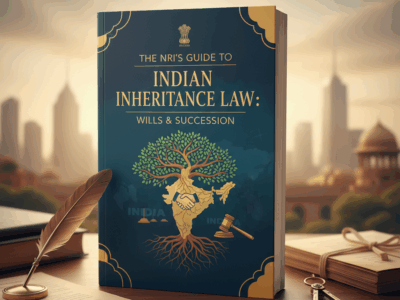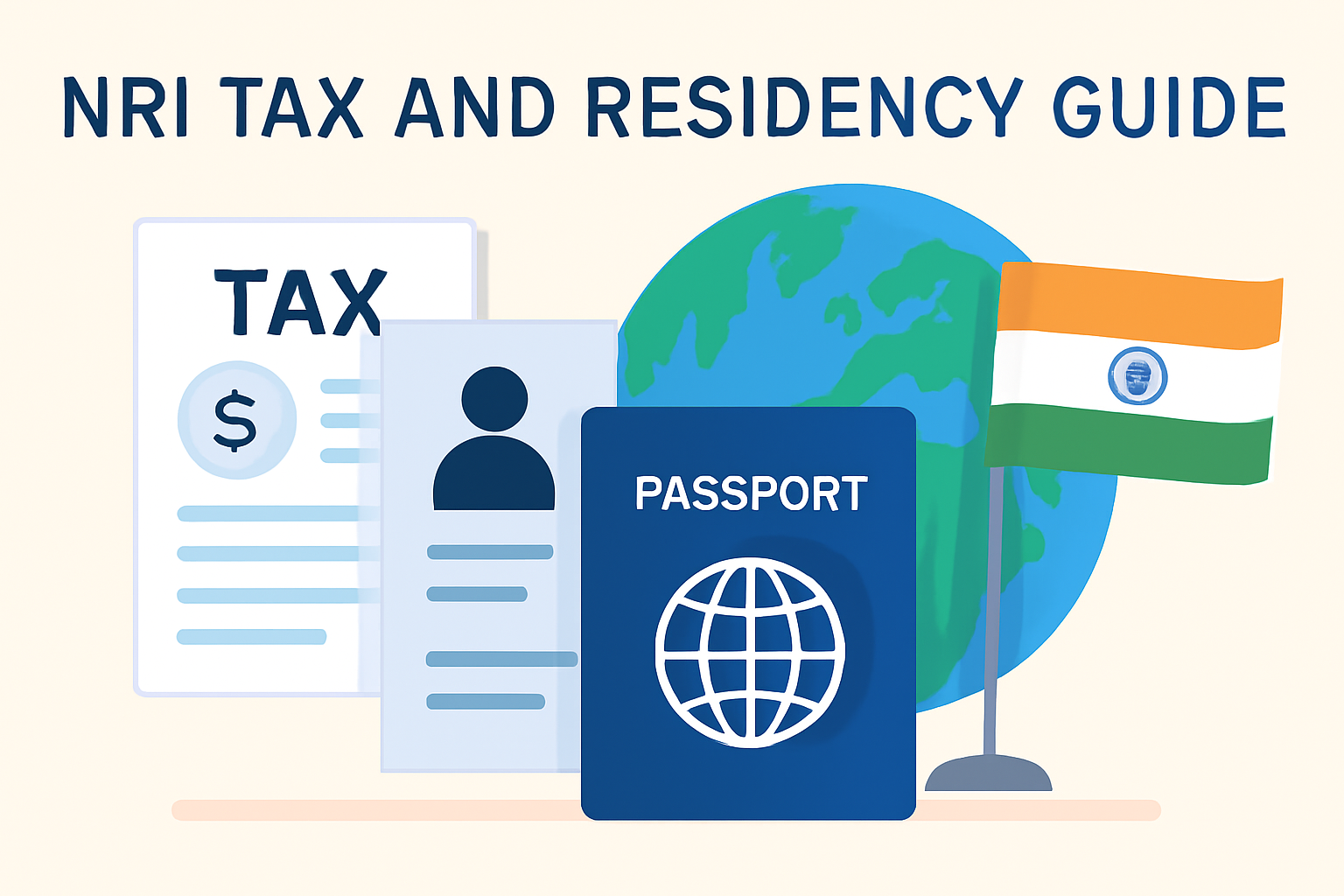Thinking about inheriting property or other assets from your parents in India? The great news is that India has no direct inheritance tax. However, this doesn’t mean the process is free from financial implications. The real challenge lies in understanding and planning for the Capital Gains Tax you’ll face when you decide to sell the inherited asset. This comprehensive guide will walk you through everything you need to know—from the detailed legal procedures of transferring ownership and the specific tax rules for different assets like property, shares, and gold, to special considerations for NRI heirs. Use our interactive tools and clear explanations to navigate the complexities of inheritance and make informed financial decisions.
Inheriting from Parents in India?
The good news: There is no inheritance tax. But that's not the whole story. Understand the real taxes you'll face and how to navigate the legal maze.
1. The Inheritance
Receiving assets (property, shares, gold) from parents is 100% tax-free. No tax is due at the moment of transfer.
2. The Income
Any income the asset generates *after* you inherit it (e.g., rent, interest) is added to your income and taxed at your slab rate.
3. The Sale
When you sell the inherited asset, the profit (Capital Gain) is subject to Capital Gains Tax. This is the main tax you need to plan for.
The Real Tax: Understanding Capital Gains
This is where it gets tricky. The tax you pay depends on how long the asset was held (by you AND your parents), its original cost, and inflation. Here's a simplified breakdown.
Key Rules for Inherited Assets:
-
Holding Period: The clock starts from when your parent first bought the asset, not when you inherited it. This helps most gains qualify as Long-Term Capital Gains (LTCG), which have lower tax rates.
-
Cost of Acquisition: Your cost is what your parent originally paid for it. You inherit their cost basis.
-
Indexation Benefit: For LTCG on property, gold etc., you can increase the purchase cost to account for inflation, significantly reducing your taxable profit.
Interactive LTCG Calculator (Immovable Property)
See how indexation impacts your tax. Enter hypothetical values to compare.
A Guide to Inheriting Different Assets
The rules for transfer and taxation vary by asset. Select an asset type to see the details.
| Asset Class | Tax on Receipt | Tax on Income | Tax on Sale (Capital Gains) | Key Transfer Process |
|---|
The Legal Pathway: Will vs. No Will
The legal process to claim your inheritance depends entirely on whether your parent left a Will.
With a Will (Testamentary)
This is the smoother path. The Will dictates who gets what.
- Clear instructions from parent.
- Lower chance of family disputes.
- May require 'Probate' (court verification), which can take time and money, especially in Mumbai, Kolkata, or Chennai.
Without a Will (Intestate)
The law decides. Assets are distributed as per religious succession laws (e.g., Hindu Succession Act).
- Distribution is fixed by law, not by parent's wishes.
- Higher risk of disputes among heirs.
- Requires obtaining a 'Succession Certificate' from a court, which is a lengthy process.
Frequently Asked Questions
Is there any chance inheritance tax will be reintroduced?
It's a topic of political debate, but there are no formal proposals to reintroduce it. The previous Estate Duty Act was abolished in 1985 due to high administrative costs and low revenue collection. For now, the system remains as described.
What about gifts from parents during their lifetime?
Gifts from specified relatives, including parents, are completely tax-free for the recipient. However, gifting immovable property involves paying stamp duty, which can be substantial, whereas transfer via a Will does not.
I am an NRI. Are the rules different for me?
You can inherit property just like a resident. The tax rules on income and sale are also the same. The main difference is in repatriation: you can send up to USD 1 million per financial year from the sale proceeds abroad, after paying all applicable taxes in India.
Interactive Tax Decision Tree
Answer a few simple questions to find the capital gains tax rule for your inherited asset.
Step 1: What is your residency status?
A Strategic Choice: Inheritance vs. Lifetime Gifts
Parents can transfer assets during their lifetime or through a Will. The choice has significant legal and financial implications.
Gifting (During Lifetime)
An immediate and irrevocable transfer of ownership between living persons.
- −Cost: Requires payment of Stamp Duty for immovable property, which can be a significant upfront expense.
- −Control: Parent loses all legal control over the asset immediately after the gift is made.
- +Certainty: A registered gift deed provides immediate legal finality and is difficult to challenge later.
Bequeathing (Via Will)
A transfer of ownership that only takes effect after the parent's death.
- +Cost: No Stamp Duty is payable on transfer. However, probate (if required) involves court fees and legal costs.
- +Control: Parent retains full ownership and control of the asset throughout their lifetime.
- −Certainty: The process can be delayed by probate and is more susceptible to legal challenges from other heirs.
Special Guide for Non-Resident Indian (NRI) Heirs
The rules are similar for NRIs, but with key regulations under FEMA for moving money abroad.
Right to Inherit & Taxation
FEMA permits NRIs to inherit any property in India. The act of inheriting is tax-free. However, any income (rent) or capital gains from selling the asset in India is taxable in India, subject to DTAA benefits.
Repatriation of Funds
Sale proceeds must first go to an NRO account. From there, you can transfer up to USD 1 Million per financial year abroad after paying all applicable taxes and filing Forms 15CA/CB.
Key Restriction
The sale proceeds of inherited agricultural land, a plantation, or a farmhouse cannot be repatriated outside India by an NRI.
The Bigger Picture: Past, Present, and Future
Why was inheritance tax abolished, and could it ever return?
Legacy of Estate Duty (1953-1985)
India's previous inheritance tax was abolished in 1985 primarily because it failed in practice. Key reasons included:
- Extremely low revenue collection.
- High administrative costs for the government.
- Complex valuation rules leading to disputes.
- Widespread tax evasion.
The Modern Debate: Reintroduction?
The topic periodically resurfaces in political and economic discussions.
- Argument For: A tool to reduce wealth inequality and fund social programs.
- Argument Against: Risks of capital flight, administrative challenges, and potential harm to family businesses.
Currently, there are no formal government proposals to bring it back.









